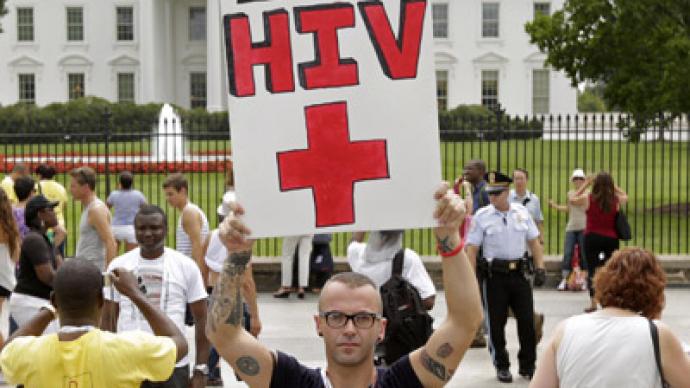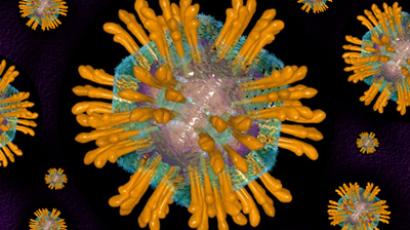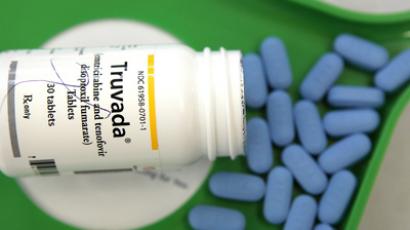Thousands march on the White House to protest TPP

More than a dozen protesters upset with US President Barack Obama’s inclusion of America in the proposed Trans-Pacific Partnership trade deal were arrested at the White House on Tuesday at the tail end of an AIDS march on the nation’s capital.
A march held in conjunction with the International AIDS Conference occurring this week in Washington, D.C. ended with 13 protesters being arrested in front of the president’s Pennsylvania Avenue home. According to an early report published by the Huffington Post, police detained the protesters for hanging AIDS ribbons the White House fence and then refusing to clear the adjacent street.Thousands of protesters led their march down the city’s K Street and to the north side of the White House in order to voice their grievances with the Trans-Pacific Partnership, or TPP, an international trade deal that could come with mass implications for around the world if passed. Along with Brunei, Chile, Singapore, New Zealand, Australia, Peru, Vietnam, Malaysia, Mexico and Canada, the United States has signed on to be a part a roster of negotiating nations that now includes 11 countries. Critics fear, though, that the TPP passing could pose grave dangers for Americans that rely on prescription drugs.
Provisions of the TPP that deal with the intellectual property of prescription drugs would mean that some major pharmaceutical companies could be allowed to operate international monopolies. By doing so, those that rely on medications say that drug prices around the world could become grossly inflated, forcing potentially millions of people to go off of their medications due to an inability to afford the increased costs. Low-income Americans that rely on drugs to treat the symptoms of AIDS are among those that could be affected by the TPP’s passing. Outside of the White House, some protesters held signs challenging the trade deal, complete with messages that proclaimed "PFIZER + OBAMA'S TPP = DEATH FOR PEOPLE WITH AIDS," HuffPo reports, referring to the major American pharmaceutical company.
Tuesday’s White House march wasn’t the only protest of the day targeting the president’s trade policies, either. All the way across the country in Portland, Oregon, members of the 5,000-strong Association of Western Pulp and Paper Workers (AWPPW) organized a picket line outside of a luncheon fundraiser for the president because they feel that their jobs could be lost if the TPP is put into law.AWPPW Vice President Greg Pallesen tells In These Times that Obama’s favoring of the TPP is “disappointing” and insists that, if signed, “it’s going to lead to a job loss on the manufacturing side.”














